#The Transition of Mali
Explore tagged Tumblr posts
Text
Mali Music - Contradiction ft. Jhené Aiko
11 notes
·
View notes
Text
Destitution du Général d’Armée Assimi GOÏTA : La Cour constitutionnelle se déclare incompétente
⚖️ Par un arrêt officiel daté du 18 juin 2025, la plus haute juridiction constitutionnelle du Mali rejette une requête visant la destitution du chef de l’exécutif de la Transition, en se déclarant incompétente à en connaître. Le 18 juin 2025, la Cour constitutionnelle du Mali a tranché : elle n’est pas compétente pour se prononcer sur une requête visant la destitution du Général d’Armée Assimi…
#Cour constitutionnelle#Général Assimi GOÏTA#haute trahison#institutions démocratiques#transition Mali
0 notes
Text
Création de la Confédération de l’AES: le CNT examine aujourd’hui le traité
Le Conseil national de Transition (CNT) va examiner, ce jeudi 31 octobre 2024, l’ordonnance du gouvernement autorisant la ratification du traité portant création de la confédération des Etats du Sahel (AES) adopté le 6 juillet 2024 à Niamey. De plus, l’organe législatif de transition envisage de statuer sur le projet de loi portant code pénal et celui portant code de procédure pénale… La…
0 notes
Text
Sentinelle de la Transition, le Premier-ministre, Choguel Kokalla MAIGA aura rappelé à Moussa MARA, l'ex-maire de la Commune IV de Bamako, qu’il est sous contrôle judiciaire.
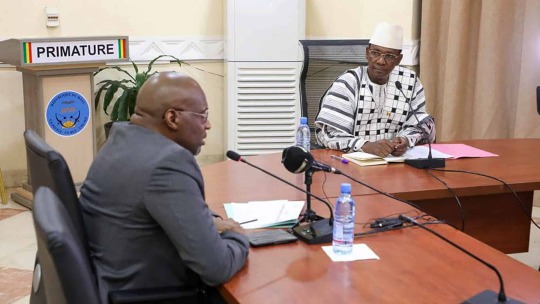
View On WordPress
#Bamako#Choguel Kokalla MAIGA#Commune IV#contrôle#ex-maire#judiciaire#Mali#Moussa MARA#Premier-ministre#Sentinelle#Transition
0 notes
Text
Adbourahamane Tiani en visite officielle au Mali.
Adbourahamane Tiani est au Mali.
Le chef de la junte militaire du Niger est en visite chez son homologue Assimi Goïta. Tiani est reçu au Mali Depuis sa prise de pouvoir, le Général Abdourahane Tiani semble rentrer peu a peu dans la posture d’un chef d’état validé par la communauté internationale. Il ya quelque jours, l’Allemagne s’est vu accorder u e audience pour reprendre les relations avec Niamey. Aujourd’hui, l’homme fort…
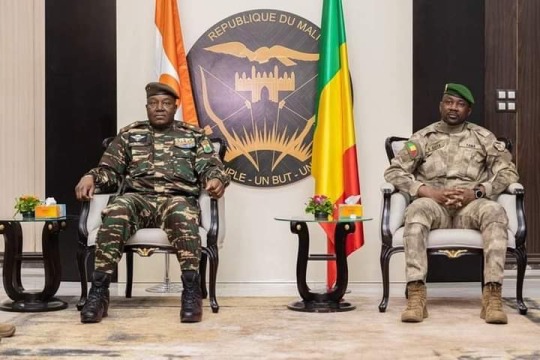
View On WordPress
0 notes
Text
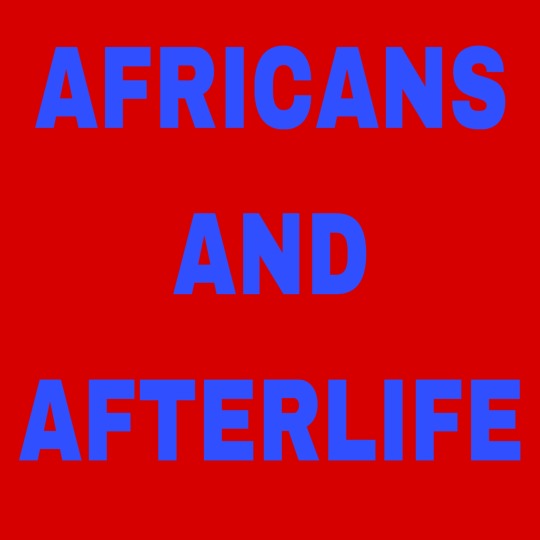
Diverse African Cultures and Beliefs about Life After Death
Introduction
Africa is a continent rich in cultural diversity and traditions, and this extends to its beliefs about life after death. Across the vast expanse of Africa, there are numerous cultures, each with its own unique perspective on what happens when life on Earth comes to an end. In this article, we will explore some of the fascinating beliefs about life after death that are deeply ingrained in African societies.
1. The Ancestor Veneration of the Akan People (Ghana and Ivory Coast)
In Akan culture, which encompasses the Ashanti, Fante, and Akuapem people, ancestors hold a significant place in the spiritual realm. They believe that after death, the souls of the departed continue to exist and influence the lives of their living descendants. Ancestor veneration involves rituals, offerings, and prayers to keep these spirits content and receive guidance and protection from them.
2. The Reincarnation Belief of the Yoruba People (Nigeria, Benin, and Togo)
The Yoruba people have a belief in reincarnation, where it is thought that the soul of a deceased person is reborn into a new body. The deceased's name may even be given to the newborn as a way of connecting the past and present lives. The Yoruba also believe that the deceased can communicate with the living in dreams and visions.
3. The Eternal Journey in Ancient Egyptian Culture (Egypt)
Ancient Egypt is renowned for its elaborate beliefs about the afterlife. Egyptians believed in a complex journey after death, where the soul faced trials and judgment before reaching the eternal paradise known as the "Field of Reeds." To ensure a successful afterlife, elaborate burial rituals and tombs were constructed, including the famous pyramids.
4. The Importance of Ancestral Connection in Zulu Beliefs (South Africa)
Among the Zulu people, the connection to ancestors is deeply cherished. It is believed that after death, the ancestors continue to play a role in the lives of their descendants. Rituals such as sacrifices and ceremonies are performed to honor and seek guidance from these ancestral spirits. Displeasing the ancestors can bring misfortune, while pleasing them can bring blessings.
5. The Dualistic Beliefs of the Dogon People (Mali)
The Dogon people have a dualistic belief system. They believe that after death, one's soul splits into two parts: one part goes to the ancestral realm, while the other is reincarnated into a new being. This complex system reflects the Dogon's spiritual connection to both their ancestors and the cycle of life.
6. The Spiritual Transition in the Akan-Bono Culture (Ghana)
The Akan-Bono people have a unique belief in the transitional phase after death. It is believed that after a person dies, their soul goes through a period of adjustment before joining the ancestors in the spiritual realm. During this time, the soul is thought to revisit important places and people from their earthly life.:
7. The Burial Rituals of the Senufo People (Ivory Coast, Mali, and Burkina Faso)
Among the Senufo people, the transition from life to the afterlife is marked by elaborate burial rituals. They believe that after death, the deceased's spirit lingers in the vicinity of their burial site. Special ceremonies and sacrifices are conducted to ensure a peaceful journey for the departed and to maintain a connection between the living and the deceased.
8. The Concept of the "Underworld" in San/Bushmen Beliefs (Southern Africa)
The San people, also known as Bushmen, have a belief in an underworld inhabited by spirits. After death, the souls of the departed are thought to travel to this underworld, which is considered a realm of ancestral spirits. The San people often use trance dance rituals to communicate with these spirits and seek guidance.
9. The Immortality Belief of the Himba People (Namibia)
The Himba people hold a belief that the spirits of their ancestors are immortal and continue to watch over the living. They also believe in reincarnation, where the spirit of a deceased person can be reborn into a new child within the same family. This belief reinforces the strong bond between generations.
10. The Role of Dreams in Khoikhoi Beliefs (South Africa)
The Khoikhoi people place great importance on dreams as a means of communication with the deceased. It is believed that dreams can provide insights, warnings, or messages from the spirit world. Special rituals are performed to interpret dreams and receive guidance from ancestors.
11. The Journey to the "Land of the Dead" in Dinka Culture (South Sudan)
Among the Dinka people, the journey to the afterlife is seen as a migration to the "Land of the Dead." They believe that the deceased will join their ancestors in this realm, where they can continue their pastoral lifestyle. Special rites and ceremonies are conducted to facilitate this transition.
12. The Symbolism of the Baobab Tree in Many African Beliefs
Across various African cultures, the mighty baobab tree is often associated with the afterlife. It is believed that these ancient trees serve as a link between the earthly realm and the world of spirits. Many cultures bury their deceased near baobab trees, believing that the tree's roots connect with the spirits below.
Conclusion
The intricate beliefs about life after death in Africa reflect the continent's cultural richness and diversity. From ancestor veneration to reincarnation, from underworld journeys to dream communication, these beliefs offer a glimpse into the deep spiritual connections that African societies maintain with their departed loved ones. Each culture's unique perspective contributes to the fascinating mosaic of African spirituality and traditions.
#life#animals#culture#aesthetic#black history#history#blm blacklivesmatter#anime and manga#architecture#black community
204 notes
·
View notes
Text

https://www.reuters.com/world/middle-east/israel-says-it-strikes-iran-amid-nuclear-tensions-2025-06-13/
11 notes
·
View notes
Text
Rito Village Main Quest: Boarding Vah Medoh!
Okay, so, while this post will not go over the dungeon itself, as that will be saved for another day. I will be going over the quest leading up to Vah Medoh, and some things that happen after it. And for anyone wondering why I decided to start with Vah Medoh, it's mainly because it's the one I have the most ideas for! Now let's jump straight into it!
Again! I know people reading this probably already know, but everything written here is my AU/rewrite! Unless stated otherwise, none of this is canon to Breath of the Wild, outside of locations! (Excluding dungeons, minus the Divine Beasts)
So rather than the Hebra Divine Beast/Dungeon quest, starting at Rito Village, it will start at Tabantha Hills (or on the path between Piper Ridge and the Rayne Highlands if you're coming from that direction) where you will encounter Tulin for the first time.
During this encounter Link will fight off some monsters that were attacking Tulin, with Tulin dealing the final shot on whichever enemy is left. Afterwards Tulin will explain that he's trying to learn to fight to be like his dad and help protect his village.
This conversation will transition into a cutscene where the Calamity spews out malice that looks like it's going to hit them.
If Link has Mipha's Grace, then after the Malie hits him and Tulin, he will use Mipha's Grace on Tulin, while taking damage himself. If Link has Daruk's Protection, then he will activate it and use it to protect himself and Tulin. If Link has neither then both get hit and nothing else happens.
After the Malice is spewed, Teba will fly in as one last monster will appear (If Link has Urbosa's Fury then he will use that on the monster, with Teba taking it out in one hit. If Link does not have Urbosa's Fury, then Teba will take out the monster with a bomb arrow, doing damage to Link if he does not have Daruk's Protection.) with Teba taking it out.
Teba will talk to Link and thank him for helping to protect his son before heading back to Rito Village. If it is between the hours 7 PM and 6 AM in game, then Tulin will ask his dad to let Link go with them, as to help him avoid the monsters that appear at night, fast traveling Link to Rito Village (This offer can be denied). If it is outside of those hours, then they will leave Link to walk to Rito Village himself.
Whichever path that is taken will still lead to the same basic outcome, with Link having to track down Teba after getting to Rito Village. (If the night path is chosen, then Tulin will have some extra dialogue on how it was fun to hang out with Link, and how he'd like to do it again sometime) If you talk to the village chief, after the normal dialogue when you have the divine beast quest started, they will mention an old tool they heard had been used by those that had constructed the Divine Beast, that was apparently hidden away in the Hebra region.
This item is completely optional, but does make Vah Medoh easier in this version. It's essentially the grappling hook from Wind Waker, and can be found inside a dungeon near Lake Kilsie, opposite of the Sturnida Secret Hot Springs. This dungeon would essentially be similar to the Wind Temple in TOTK, at least in puzzles, with a single boss/mini boss at the end where you get the grappling hook.
Outside of puzzles in Vah Medoh that will be discussed in its own post, the Grappling hook would be able to be used to grab items from afar, do minor damage to enemies (around 5 atk), and grab onto trees and allow Link to climb up it. There would be a distance limit, and it would use up stamina, but not as much as normal climbing.
Whether Link gets the grappling hook or not, events would continue from there similar to canon BOTW, Teba will be able to be found at the flight range. However, during this meeting, Link will gain the memory of his first time meeting Revali (I don't have too much of an idea for this, so for now it's pretty much the same as the canon one, just earlier on) after which, you'll do the training thing with Teba, and he'd offer to fly Link up to Vah Medoh. (If the player has gotten to Vah Medoh's altitude within the Hebra or Tabantha regions, Teba will also make an off hand remark about it probably being safer if he flies Link up.)
A mini Easter egg that, while difficult, could be found in this au is after shooting Vah Medoh's canons, if Link/the player manages to avoid getting hit while on Teba, then he will give Link either 10 normal arrows or 10 bomb arrows, depend on which ones lower. And will also offer Link a low level healing potion, if he leaves Vah Medoh mid dungeon while damaged. This will not happen of Teba takes any damage while aiding Link in shooting down the canons.
Another easter egg would be that, after the dungeon is complete, if Link has gone to Zora's domain and has only started the Vah Ruta quest, Teba will give Link 10 Shock arrows, saying “He'll probably need them where he's going.”
Anyways! That concludes the info dump for today! I hope you all have a wonderful day or night, and stay safe!
#loz#rewrite#botw#breath of the wild#legend of zelda#loz botw#spoilers#botw link#link#vah medoh#Rito#riro village#teba#botw tulin#botw teba#revali#he's mentioned#sorta#finally getting somewhere with this
10 notes
·
View notes
Text
Greg Owen at LGBTQ Nation:
The Justice Minister in Mali announced Thursday that the West African nation is moving forward with a law to outlaw homosexuality. The country’s ruling National Transitional Council adopted the measure by a nearly unanimous vote last week. The bill still needs approval from the country’s military leaders, according to Agence France-Presse. The vote was 131 in favor and 1 against. “There are now provisions prohibiting homosexuality in Mali, and that anyone engaging in this practice or promoting or condoning it will be prosecuted,” the Malian Minister of Justice Mamadou Kassogué announced last week.
The new law makes good on a promise by the government in 2022 when Kassogué declared, “Homosexuality is an unnatural relationship. There are no specific [laws against it at present in Mali]. We are going to pass laws to prohibit it in our country.” In December, Kassogué, whose full title is Minister of Justice and Human Rights, signed a United Nations pledge committing Mali to promote and protect human rights. Mali’s ruling junta came to power three years ago in a coup. Any law singling out sexual minorities would be in violation of the African Charter on Human Rights, said Alice Nkom, a prominent attorney and LGBTQ+ rights defender in Cameroon.
Mali is set to become the latest African nation to ban LGBTQ+ identity and homosexuality.
#Mali#Homosexuality#LGBTQ+#Anti LGBTQ+ Extremism#Mali's Antigay Laws#World News#West Africa#Mamadou Kassogué
8 notes
·
View notes
Text
The Norwegian Refugee Council recently released a report highlighting the 10 most neglected displacement crises in the world in 2023. Nine of the 10 countries are in Africa – the only non-African country on the list is Honduras in central America.
Neglect, according to the council, is characterised by a lack of media coverage, inadequate humanitarian funding and insufficient international political attention. The report covers those forced to flee their homes.
Burkina Faso tops the 2024 report for a second time in a row. It’s followed by Cameroon, the Democratic Republic of Congo (DRC), Mali and Niger. Rounding off the top 10 are South Sudan, the Central African Republic, Chad and Sudan.
At The Conversation Africa, we’ve been working with academic experts to highlight the severe insecurity, massive displacement and urgent need for international and regional support in these countries. Here are some essential reads we’ve published.
Displacement crisis
The central African region hosts one of the largest communities of internally displaced persons in Africa. The countries in the region include Cameroon, the Central African Republic and the DRC. Long-running conflicts and armed rebellions have led to the region’s instability. The main organisation providing assistance is the UN refugee agency. However, in a pattern seen for at least three years, the agency’s budget for the region remains insufficient. Cristiano d'Orsi highlights the urgent need for a coordinated and sustained international response.
Regional instability
Armed groups like Boko Haram have been operating in the Lake Chad Basin for more than a decade. The region, which includes Niger, Cameroon and Chad, faces severe security challenges and many of the 30 million people living here need humanitarian assistance. More than 11 million have been displaced by conflict and need aid. Modesta Tochukwu Alozie proposes some solutions for a region whose population is expected to double in the next two decades.
Decades of neglect
Thirty years of violence in the DRC have left a trail of death, destruction and displacement. In recent months, however, a rebel insurgence in the eastern region has placed neighbouring Rwanda and Uganda at the centre of country’s conflict. According to Jason Stearns and Joshua Z. Walker, donors and UN peacekeepers are providing humanitarian aid, but doing little to address the emerging conflict dynamics. They explain why resolving the DRC crisis requires less hypocrisy from foreign donors, and an approach that prioritises the lives of civilians.
Military takeover
Niger is one of the poorest countries in the world and depends on foreign assistance. It’s also located in one of the most unstable parts of the world – the Sahel region, which is characterised by terrorism, banditry and trafficking. However, following a military coup in July 2023, the landlocked country of 25 million people lost significant aid contributions. This has since resulted in a deterioration in security, economic development and people’s wellbeing. Olayinka Ajala unpacks the long-ranging implications of the military takeover in Niger.
Escalating conflict
Sudan was on a bumpy transition to democracy after the 2019 uprisings ousted long-time dictator Omar al-Bashir. But this came to a halt in April 2023 with the outbreak of a civil war. Hostilities have since spread beyond the capital Khartoum and revived long-simmering violence in Darfur. Around 25 million people – half of Sudan’s population before the war – are in need of urgent humanitarian assistance. The war is creating a volatile environment beyond Sudan’s borders, as May Darwich explains.
Precarious peace
South Sudan gained independence in 2011 but remains extremely poor and underdeveloped. The country is reliant on oil exports for public revenue. This oil has to pass through Sudan to reach export markets. However, Sudan’s ongoing war poses a serious threat to Juba’s development efforts and an already precarious peace process. John Mukum Mbaku puts these risks into context.
15 notes
·
View notes
Text
What do i think about when a country is mentioned or what do I associate it with
Algeria - Sahara desert
Angola - thumb pianos, Luanda being an incredibly expensive place to live
Benin - dahomey, voodoo
Botswana - diamonds and the fact that it has been called the success story of Africa
Burkina Faso - Ouagadougou formerly called upper volta.
Burundi - drums used during a revolution there. Gorillas
Cabo Verde - the shape of the country is like a ring of islands all around another island
Cameroon - soccer, limnically active lakes
Central African Republic - the French language
Chad - Lake Chad, Taureg People particularly the blue headscarves
Comoros - Anjouan Moheli and Grand Comore. Has had lots of coups
Congo DRC - my sister is into epidemiology so she talks about it a lot.
Congo - across a river from Brazzaville is Kinsasha
Cote d'Ivoire - Chocolate and the flag is the reverse of ireland
Djibouti - Lake Assal
Egypt - the pyramids
Equatorial Guinea - Spanish speaking, usually the country I use to explain why GDP per capita can be skewed.
Eritrea - architecture influenced by italy
Eswatini - I once got it confused with Switzerland, there's a holiday called Incwala
Ethiopia - a book I read a kid called "children just like me" also pizza hut, weddings, raw beef.
Gabon - oil and the fact that they have places called ogooue
Gambia - the shape and Yaya Jammeh
Ghana - also soccer, Elmina Castle
Guinea - One of the countries my sister knows a lot about
Guinea-Bissau - hippos
Kenya - Jeff
Lesotho - mountains
Liberia - my sister does a great impression of the I'm Liberian meme. Ebola, Ebola in town, don't touch your friend
Libya - Gaddafi, Has a much better flag now. A transit point in human smuggling.
Madagascar - vanilla
Malawi - perch
Mali - Houses built out of mud, west African Islamic architecture.
Mauritania - slavery, I watched a lot of videos during quarantine about modern day slavery.
Mauritius - hinduism
Morocco - markets and tangines
Mozambique - Cabo Delgado
Namibia - San People
Niger - The coup, the orange dot on the flag
Nigeria - Boko Haram
Rwanda - Rwandan Genocide
Sao Tome and Principe - water access for some reason
Senegal - I think this one YouTuber I watch is from there
Seychelles - Hetalia
Sierra Leone - Civil War
Somalia - it's shaped like a music note
South Africa - Vuvuzelas
South Sudan - Francis Bok
Sudan - There are more pyramids here than in Egypt
Tanzania - zanzibar
Togo - for here or Togo meme. I'm sorry Togo I know nothing about you
Tunisia - Arab spring
Uganda - Mr. Moseby
Zambia - the shape of the country reminds me of a fetus. There is also some really cool waterfalls I think, not sure.
Zimbabwe - Mugabe
9 notes
·
View notes
Text
COMMUNIQUÉ DE LA CNDH – ALERTE SUR LE DROIT À LA PARTICIPATION POLITIQUE AU MALI
️ Dans le silence pesant d’une transition à rallonge Les voix qui veillent sur les libertés sortent de l’ombre. Au nom de la dignité humaine, la CNDH appelle à ne pas brader les acquis démocratiques sur l’autel des calculs politiques. Quand les droits fondamentaux vacillent, c’est la mémoire de tout un peuple qui tremble. La CNDH monte au créneau : communiqué du 16 juin 2025 La Commission…
0 notes
Text
Sirian People: the inhabitants of the Sirius star system
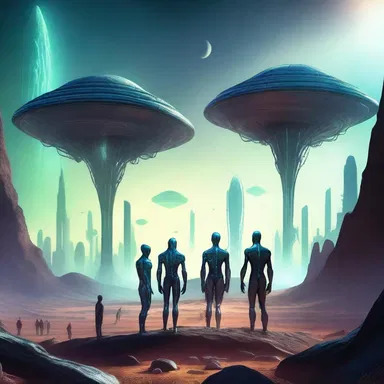
The Sirius star system has an intriguing mythological connection to interstellar beings, particularly through the narrative of the Dogon tribe of Mali, West Africa. According to the sources, the Dogon claim to have been visited by amphibious beings called Nammo, who arrived by spaceship from the Sirius star system approximately 600 years ago.
These Sirian inhabitants reportedly shared sacred, indigenous knowledge about their native home, including detailed information about Sirius A and B, and even mentioned a third star called Emme Ya (Sirius C). The Dogon were said to possess extraordinary astronomical knowledge that would have been impossible to obtain without advanced technology, such as understanding the 50-year orbital period of the binary star system and knowing about Sirius B before western astronomers.
While scientific confirmation exists for Sirius A and B, Sirius C remains a mystery. Some mystical interpretations suggest that Sirius C might have "graduated to a higher dimension of consciousness," with the belief that stars, like souls and planets, can evolve and ascend.
The narrative surrounding these interstellar beings blends mythology, cultural storytelling, and astronomical speculation, creating a fascinating account of potential extraterrestrial contact through the lens of the Sirius star system.
Cultural Significance
The Sirius star system has been deeply embedded in various cultural mythologies. In ancient Egyptian traditions, Sirius was associated with deities like Isis, Osiris, and Anubis, often symbolizing protection, devotion, and spiritual transition. The star's mystical reputation continues to inspire speculation about its potential connection to advanced civilizations beyond our current understanding.
3 notes
·
View notes
Text
20 Oldest Universities in the World - College Transitions
The first 3 universities in the world are located in Africa but 1 was transformed into a library after the colonizers thought they had destroyed the university in Mali but the other two are still in operation today which are the oldest universities in the world.
Africa is the first continent to offer higher education before the rest of the world.
10 notes
·
View notes
Text
US and Brazil warn of attempt to stop Guatemala president-elect taking power
Fears Guatemalan democracy is in peril amid warning of potential coup to block inauguration of anti-corruption crusader
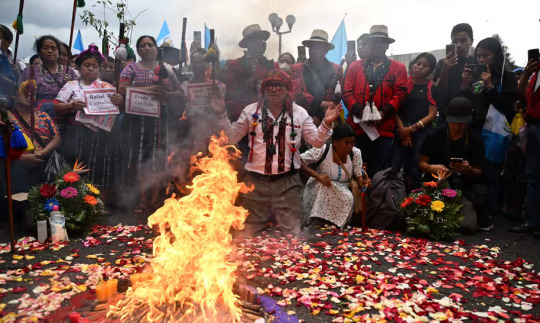
International concern over the future of Guatemala’s democracy is growing, as Brazil’s president warned of a possible coup to stop the president-elect taking power and the US denounced unprecedented attempts to undermine the Central American country’s election result.
The centre-left anti-corruption crusader Bernardo Arévalo was elected Guatemala’s new president last month. This week thousands of supporters took to the streets to protest against alleged attempts to block his inauguration in January.
Last week, Arévalo – the son of Guatemala’s first democratically elected president, Juan José Arévalo – temporarily pulled out of the transition process after government officials raided electoral facilities where ballot boxes were being stored. Arévalo has accused corrupt officials and politicians of launching “a plan to break the constitutional order and subvert democracy”. “A coup d’état [is] under way,” he claimed earlier this month after attempts to suspend his party, the Movimiento Semilla (Seed Movement).
Addressing the UN general assembly on Tuesday, the Brazilian president, Luiz Inácio Lula da Silva, echoed Arévalo’s warning, citing the crisis in Guatemala after recent “institutional ruptures” in the African nations of Burkina Faso, Gabon, Guinea, Mali, Niger and Sudan. “In Guatemala, there’s the risk of a coup, which would prevent the winner of democratic elections taking office,” Lula said.
Continue reading.
#brazil#politics#guatemala#united states#democracy#united nations#brazilian politics#us politics#guatemalan politics#international politics#foreign policy#luiz inacio lula da silva#mod nise da silveira#image description in alt
21 notes
·
View notes
Text
Okay but imagine if someone had slipped Mali-Landon some of Hope's blood (don't ask me the details of that, just go with it). So when she stabs Landon and kills Malivore, her switch flips still, but she leaves before he wakes up in transition. He feeds, he turns, he's confused - because he should be dead. And he ends up losing control, hurting people. He stays away from the school and Hope because he doesn't want them to see him like that.
Things happen more or less the same. Lizzie still goes after Hope, she still dies. But somewhere in that, Landon finds Hope again. She's different, she's darker, and she doesn't believe that this is really Landon. It's some kind of trick - and a bad one, because Landon isn't a vampire. So she tells him, flippantly, to walk into traffic or something. And he does it.
And then suddenly boom sirebonded handizzie.
#handizzie#i just think it would be fun#and could then continue with or without her humanity#like a dark storyline where she abuses the bond and makes them evil with her#or her humanity comes back and now they have to navigate things as they search for how to break the bond
6 notes
·
View notes